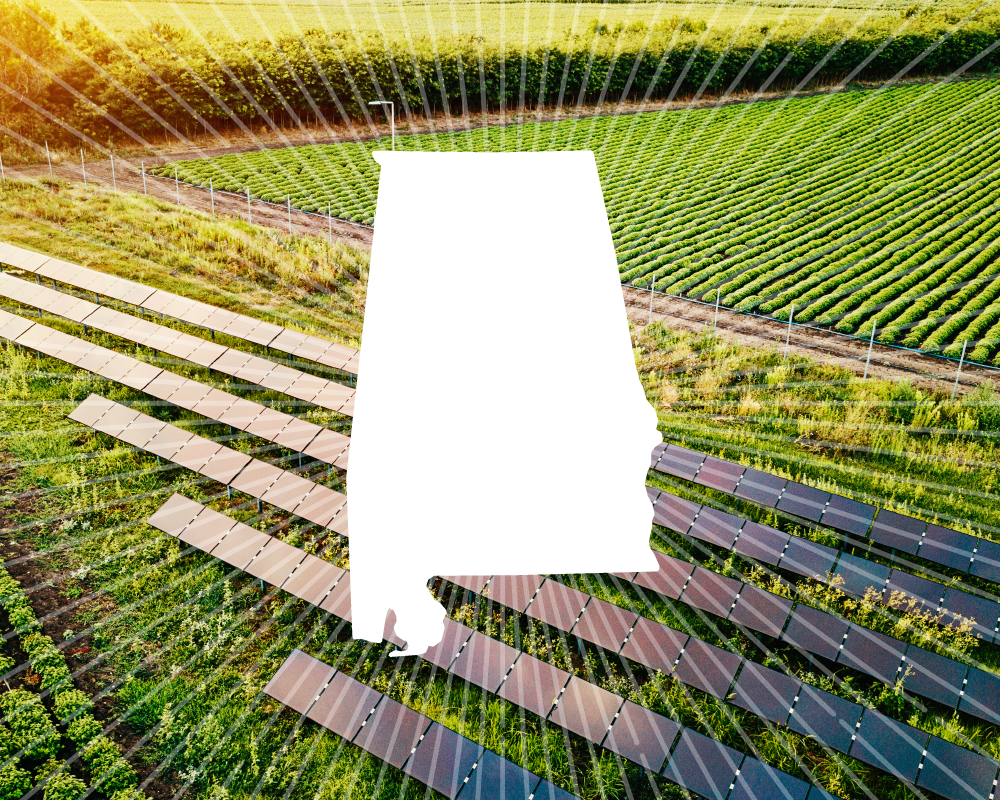April 20, 2020

“Why is Alabama so bad at solar energy? ”It’s a question you hear any time you have a conversation about renewable energy. We’re great at soaking up the rays while swimming, hunting, fishing, or attending a sporting event, but we stink at generating electricity from the abundant sunshine. Why?
We heard one answer to this question at a recent climate change conference hosted by Citizens’ Climate Education in Birmingham. Seth Hammett is an executive at a utility called PowerSouth Energy Cooperative and also the Chair of the Energy Institute of Alabama. Speaking to a crowded room of folks concerned about climate change, Hammett said solar energy is affordable, but “unreliable.”
We agree with the first part -- solar energy is affordable. In fact, it’s the most affordable way to generate electricity, which means savings that can be passed on to consumers. Fuel costs are nearly non-existent, and once the solar fields are constructed, there are minimal labor costs as well -- certainly compared to staffing a large power plant. But Hammett is wrong that solar is an unreliable source of electricity. On a cloudy day, or even at night, solar is still a sensible choice to power our communities.When the sun goes down, solar energy can easily be supplemented with battery storage technology that allows electricity to be dispensed to the grid for all of your air conditioning needs -- not to mention keeping the lights on at hospitals, airports and factories.
Our neighbors in Georgia know this, and they have capitalized on solar’s potential. They’re one of the top solar producing states in the nation. Their Republican-controlled Public Service Commission just approved a massive amount of utility scale solar in Georgia Power’s 2019 energy plan. Meanwhile, Alabama Power prefers to generate electricity by proposing to build a new fossil fuel gas plant near Mobile, and a recent study found the utility ranked dead last in the nation when it comes to energy efficiency programs.
Why are Georgia and Alabama taking opposite approaches? Within three years, Georgia Power will build enough solar to more than double the electric output of Alabama Power’s proposed Mobile gas plant. Alabama gets just as much sun as Georgia does. Even Alabama Power knows the technology works and is ready to deploy. In the same proposal for the new fracked gas plant, they also proposed five solar and storage facilities.
Just by counting dollars and cents, the data is clear that Alabama is on the wrong path by continuing to burn fossil fuels. You don’t have to care about climate change to know that renewables are a better deal for consumers. Yet Alabama Power still proposes new gas plants and continues to burn coal at its three enormous coal-fired power plants around the state. A Rocky Mountain Institute study released last year found that if all currently proposed gas plants are built, 70 percent of them will become uneconomic by 2035. Building a new gas plant now means Alabamians will be saddled with outdated energy infrastructure for decades.
Dismissing renewables as unreliable might have worked for energy sector leaders like Hammett a decade ago, but not in 2020. Four out of five Alabama residents support increased investments in renewables. Our neighboring states see the light. Solar works. Now if someone will just tell the utility executives.
Marley Davis is a Sierra Club volunteer from Birmingham and a recent graduate of Samford University.
Stephen Stetson is Sierra Club's Beyond Coal Campaign representative based in Montgomery.
Stephen Stetson is Sierra Club's Beyond Coal Campaign representative based in Montgomery.